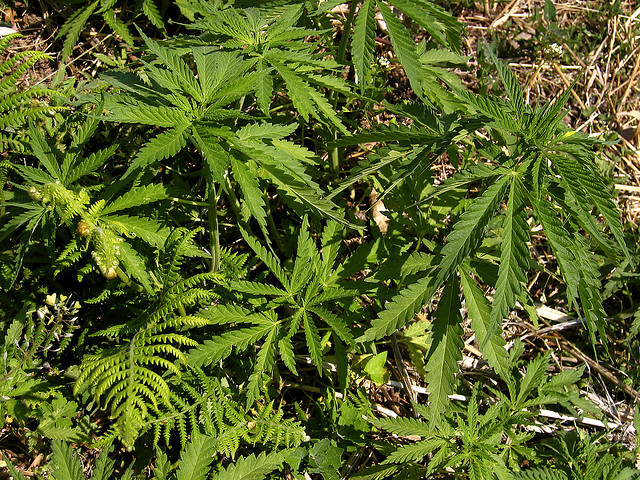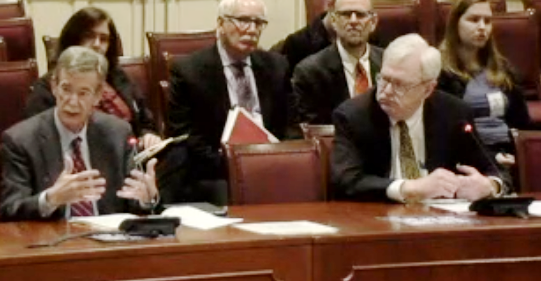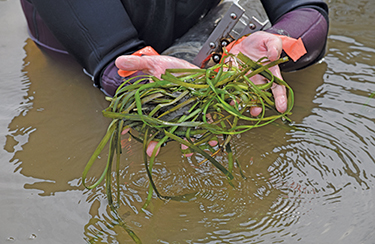By Michael Collins
For MarylandReporter.com
Just when you thought the cloud surrounding Maryland’s “medical” marijuana scheme couldn’t get any worse … it did.
Auditors from Maryland’s Office of Legislative Audits recently found that the Maryland Medical Cannabis Commission may have violated state procurement law and is overpaying for consulting services … and has not paid its bills.
Procurement follies
The Commission hired Towson University’s Regional Economic Studies Institute (RESI) to evaluate applications to grow, process, and distribute “medical” marijuana. The commission used a Memorandum of Understanding (MOU) with Towson to secure RESI’s services, rather than using a competitive bid process. It then broke its work into four smaller parts in what appeared to be an effort to circumvent Maryland’s procurement laws.
Most Marylanders would be shocked—shocked—to learn that the review cost nearly three times more to conduct than the commission had estimated — mainly because it underestimated the number of applicants. They might be further shocked to learn that the commission has not paid RESI’s bill for services rendered.
Cronyism
This type of bungling really should not shock anybody. Maryland’s “medical” marijuana program has been rife with conflicts since its inception. The scheme to select applicants for licenses to grow and distribute “medical” marijuana has been stalled by lawsuits that shed light on the clubby nature of the commission that chose the winners and losers in an industry where insiders tended to win.
No African-American applicants won any of the 15 licenses despite the fact that the law creating the commission listed “diversity” as a selection criterion . Two of those applicants have sued, which has delayed the issuance of licenses. Gov. Larry Hogan has just ordered a study of the diversity issue.
A “fix” proposed by members of the Legislative Black Caucus failed to be voted on in the final minutes before the legislature adjourned. Privately, some legislators said they were not going to pass a bill that was written to blatantly benefit specific friends of bill sponsors.
Apparently cronyism will only go so far, even in Maryland. For its part, the Legislative Black Caucus has demanded that the legislature be convened in special session to solve the issue to their satisfaction. That will only happen if the Democratic leaders can agree.
Medical marijuana was already tarnished earlier in the session when the legislature censured Delegate Dan Morhaim, D-Baltimore County, for ethics violations. Turns out Morhaim, who was on the committee that helped draft the “medical” marijuana legislation and then helped the commission make it rules, was at the same time secretly employed as a consultant for one of the winning applicants.
Pipe dreams
Maryland’s botched kickoff of “medical” marijuana should give legislators pause, but it hasn’t. Legislators are high on the possibility of a gusher of revenue from regulating and taxing recreational marijuana, too. They point to Colorado, which claims to have brought in more than $200 million in new tax revenue.
The notion of being the first source of commercially available “legal” weed on the East Coast is heady stuff. Using marijuana is legal in the District of Columbia, as is growing it for personal use. But Maryland would be in the catbird seat as the first state to legalize sale from Miami to Maine and anchors the fourth wealthiest region in the nation.
But the Colorado experience should inform our legislators, too. Although Rocky Mountain legislators boasted of tough controls, the state has become a draw for drug tourism and I-70 has become a major pot transit route. In addition, so-called “edibles” are making their way into schools. As important, the high tax rate has made black-market weed more attractive and less controllable.
Marijuana advocates like to point to regulation and taxation of alcohol as model for legal weed. One needs look no further than the Prince George’s County liquor board bribery scandal to the potential for abuse. Imagine how that will work with marijuana growing operations and dispensaries.
Dangerous precedent
The marijuana industry took root during the administration of President Barack Obama who chose to turn a blind eye to federal drug laws. But marijuana is still a Schedule 1 drug under the Controlled Substances Act. Those who invest in marijuana operations stand to lose their investments and are still subject to federal prosecution as drug kingpins. In addition, federal banking laws have not changed, making it illegal to stash cash from marijuana in banks.
By passing laws to allow “legal” marijuana growing operations in the state, Maryland is setting a dangerous precedent that states can nullify federal laws by ignoring them. This is a threat to our federal system. If the states are not bound by the supremacy clause of the U.S. Constitution, then, by extension, counties are free to pick and choose which state laws and regulations they will obey.
As I said in a previous column, imagine Peter Franchot’s reaction if Carroll County’s government concluded that state taxes on tobacco and alcohol were unreasonably high and ignored smuggling and sale of untaxed cigarettes and alcohol in the county.
New beginnings
Rather than trying to legalize marijuana as a “new industry,’ which is illegal under federal law, state legislators should work to change federal laws on cannabis and banking. At a minimum, cannabis should be removed from Schedule 1 and, if legislators really think legal weed is a good thing, then ask Congress to devolve regulatory authority over cannabis to the states.
Maryland’s legislature, which seems to have a revived “culture of corruption,” has made a hash out of marijuana laws. It should go back to the drawing board and start over. Getting it right should be more important than being ahead of the pack.
Michael Collins can be reached at michael.collins.capital@gmail.com







Funny, not ONE word about the patients that will benefit from this or how they are being harmed by this redicuoulsly slow roll out…
All this reverse racism crap is just that. CRAP! The best applicants were awarded licenses based on experience and the best business models. PERIOD. FULL STOP. Just keep slinging it on the corners and stop bitching. If you didnt get a contract you were not properly prepared. Always with your hands out!
Just curious who’s always with there hands out? And also facts are facts and diversity was written in. It’s all about MONEY I Maryland of you got the big bucks you can pay the right people and boom. Come on how you think that Forwardgro is the only grower allowed to grow they got major backing facility alone got to begin upwards of 10-15 mil buildout so it’s easy for them to powder the right pockets. Nobody playing racism what people are com0laining about is a equal shot a booming business.
Why does this article put medical in quotes? That’s insulting to patients, & at odds with much research & the powerful work of those like CNN’s Dr. Sanjay Gupta.
I put “medical” in quotes because weed has not been approved as medicine by the FDA, it will not contain any warnings about drug interactions as do other medicines, potency and dosages have not been scientifically determined for treatment regimens, and there is a lack of peer-reviewed science on the efficacy of marijuana as a “medicine.” It may indeed have a palliative effect, but so far that is anecdotal in the absence of sound research.
the hell with there “tax and regulate”,,,
this government spends enough waisted tax payers monies…
~regulate like tomatoes ~
I’m not surprised by any of this… Not at all !
When I last wrote on this subject, I was ridiculed for writing about the “dark side” of pot legalization and that the costs far exceed any supposed “benefits” and the news regarding “impaired driving” by drivers using pot continue to come out…
Maryland has an “opioid crisis” doesn’t need to add another drug abuse problem with those who can’t function without smoking a joint or bowl…
Many years ago worked at a job where I was the only person that was drug free and sober… Guess who had to work harder than necessary to “pick up the slack” ?
marijuana IS safeR than alcohol
Cannabis has been found to treat opioid addiction!